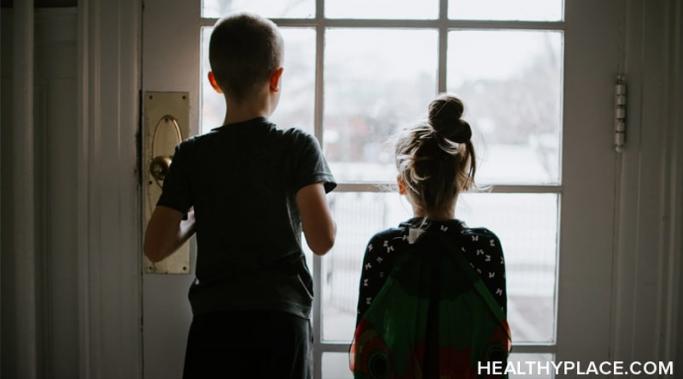My brother recently expressed his fear that mental illness has made him a burden on our family. This completely broke my heart, and I was pained to tell him that it isn't true. If you need to hear that message too, let me remind you today -- mental illness does not make you a burden.
Mental Illness and Caregivers
I've been learning in therapy that so many of the things I've accepted as "fact" all my life are actually subjective beliefs passed down from my family. I loved the challenge my therapist set me this week of deconstructing my family's beliefs on various topics, including mental health.
Family expectations can be draining for a lot of reasons. Depending on what kind of family you come from, there’s a whole bunch of different unwritten rules about the types of lives we “should” live. My brother’s mental illness challenged our family expectations in a major way, and when I reflect on it I see that he changed our family culture for the better.
Defining your role in mental health support can be tricky in a family situation, especially if you have some sort of professional healthcare background. I had recently qualified as an occupational therapist, and when my brother was diagnosed with chronic anxiety and depression, I put a lot of pressure on myself to be more than just a sister because of that. I wish I could take that back.
I was raised by parents with mental illness. My mother has been diagnosed with a few mental illnesses, and if my father had not passed away at such a young age, he would have been diagnosed as well. Due to this circumstance, I was raised under certain conditions that others were not exposed to. This article is intended to bring attention to some of the characteristics in the childhood of an individual raised by parents with mental illness.
I feel a growing responsibility to normalize mental health discussions outside of dedicated platforms, such as this blog. For people like my brother who live with chronic mental illness to exist stigma-free, we need to demystify the topic of mental illness in the wider community.
Supporting someone in denial about their mental health can be a very delicate situation. A friend of mine is living this reality at present -- her partner is exhibiting clear symptoms of mental illness but is not able to have a conversation about it just yet. Supporting my friend has reminded me of when my brother was also in denial about his mental health before he received a diagnosis. Here are some of the things I learned through that experience.
When we're supporting someone with mental illness, I think it's very important to constantly examine how healthy our relationship with that person is. As my brother lives with chronic mental illness, I have first-hand experience of how unhealthy behaviors can easily creep into relationships, even with the best of intentions.
I have been down a serious Google rabbit hole this past week on the subject of mental illness masking other conditions. The reason for this is personal -- my brother is currently undergoing diagnostic testing for autism. The more I think about this, the more it makes sense that mental illness could inhibit timely diagnosis of other issues.
Respecting the boundaries of mentally ill loved ones should be a given, but sometimes we push these boundaries -- I've certainly been guilty of this in the past. Even when this is done out of good intent, I don't believe it is a fair thing to do. I have learned a lot on this topic through my experience with my brother, who has chronic mental health problems. Here's a bit of a reflection on those learnings.









